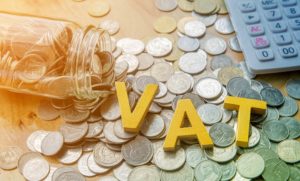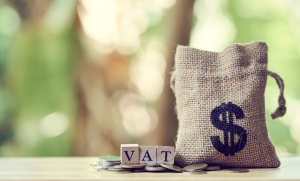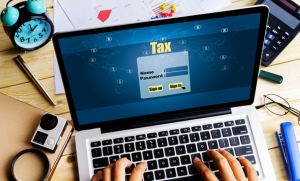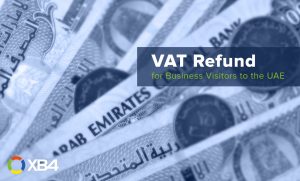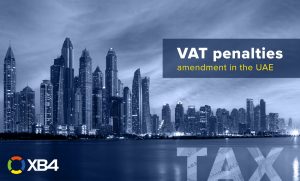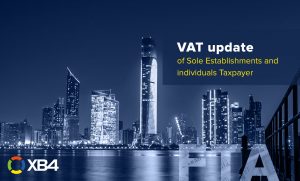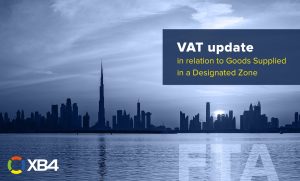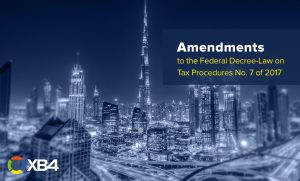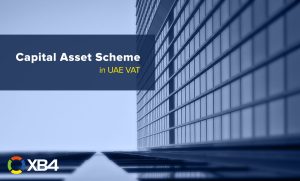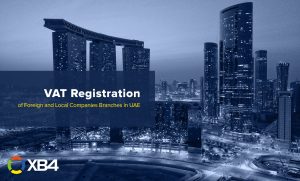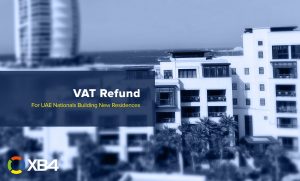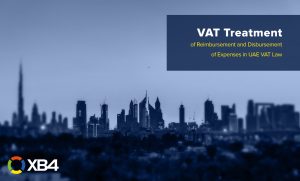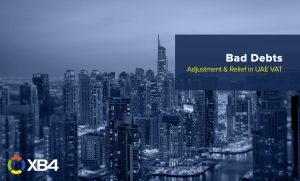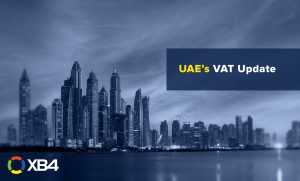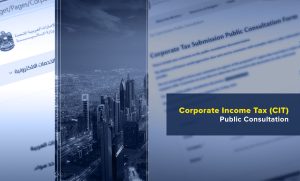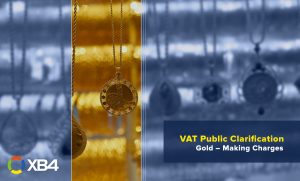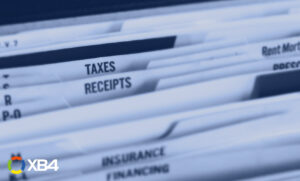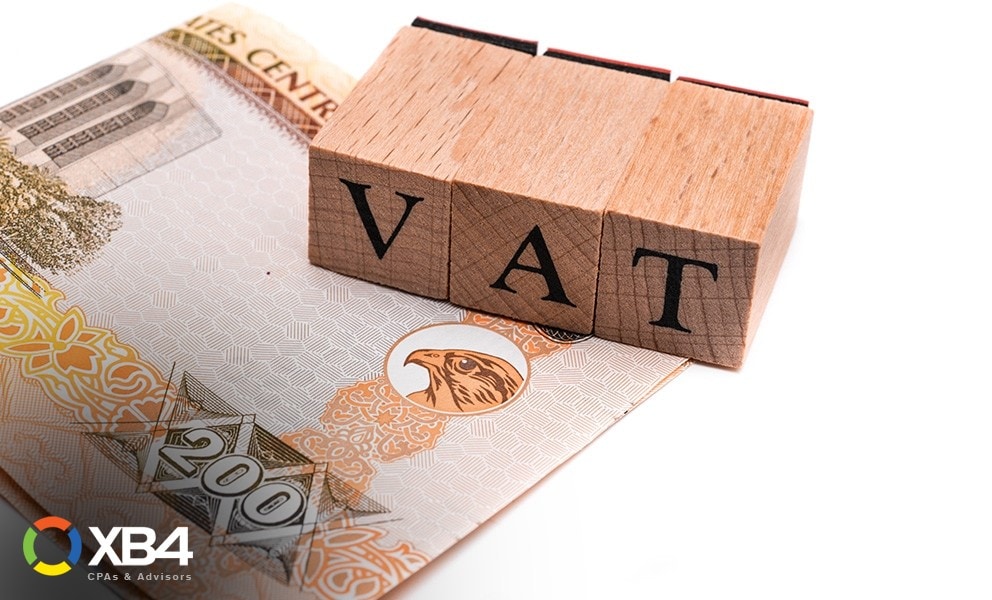
How much do you know about VAT in Dubai?
While Dubai was once considered a tax-free city, yet there were taxes imposed here, and VAT is one of them. This particular tax was implemented in Dubai and most of the other GCC countries in 2018. VAT introduction in UAE followed as a suggestion from International Monetary Fund and the idea behind this recommendation was to support the escalation in base income that can be controlled and eventually the reliability on the funds coming from Dubai and Abu Dhabi can be laid off. The Value-added Tax or VAT is regarded as a consumption tax due to the very fact that it is indirect in nature and is applied to the sale of products and services. You might be thinking as to why it is considered as an ‘indirect tax’? Well, the answer to this debate is simple, that this specific VAT is levied or applied on the transactions that occur during the sale of products and services made to the final consumers on which VAT is imposed.
Who should register for VAT in Dubai UAE?
Though it’s not a very long time ago that VAT has been introduced in UAE, however government had taken essential steps to help businesses to register for the tax in the Emirate, in clarifying the doubts of businesses and individuals as well and seemed to have made significant progress in doing so and maintaining the decorum throughout. The government had further clarified that VAT registration is optional for the new businesses, however, which may become mandatory in certain conditions which are if it fits the criteria set by the FTA. In context to the imperative VAT registration in Dubai, following are the important points to make a note of:
- Businesses reaching a threshold of AED 375,00/- per year (annual revenue) are compulsorily required to register for VAT
- Natural persons and companies that are making taxable supplies can voluntarily register for VAT. This also includes the legal entities that e importing goods subject to VAT.
- Companies having an annual threshold of AED 187,500 can voluntarily register for VAT which is not mandatory but optional.
- Foreign companies operating their businesses and making taxable supplies in Dubai are required to register for VAT
Dubai Companies that are registered for VAT will charge VAT from the final consumers and will pay the net amount of tax to the government . In order to recover the amount paid as VAT, these companies need to enable this feature and need to file VAT returns .
Do you know that foreign companies in UAE can get a VAT refund?
It could be surprising to know the fact that foreign companies registered for VAT in Dubai can also claim refunds here. But how? Well, only if the foreign businesses satisfy the following conditions and these are:
- There is no fixed establishment or place of establishment in the UAE.
- The foreign entity is not a taxable person in the UAE, which means that it is neither registered nor required to be registered for VAT reasons
- The entity is not conducting business activity in the UAE
- The foreign company is conducting its business activities and registered for VAT or equivalent taxation in another country.
Moreover, it is important that for any refund claim that is intended to be initiated by foreign companies, they are required to present original hard copies of invoices that come along with the proof payment and to be submitted along with the VAT refund claim application.
Core features of VAT in Dubai:
Understanding the mechanism of Tax rate & its Process
With regards to the VAT rate in Dubai as well other Emirates, it is standard 5%, however, there are certain businesses such as healthcare sectors, educational institutions, export businesses sectors, real estate buildings, etc. (as the list includes a few of other sectors too) are exempted from this tax or may have a zero-rated tax. Each taxpayer in Dubai is registered with the FTA or Federal Tax Authority and has a VAT number which is a unique identified and a source of identification that the business is legally registered for VAT and may collect and claim the VAT generated from the business transactions. Physical persons or individuals are obliged to pay this tax ‘VAT’ whereas the business entities collect the tax and pay off the net amount to FTA after deducting the output VAT from input VAT. Confused? Here’s a basic illustration of VAT calculation for claim purposes:
Scenario 1
Company A purchased goods from a distributor.
Distributor price – AED 5,000/-
5% VAT paid – AED 250/-
Total purchase price – AED 5,250/-
Scenario 2
Company A sold goods to the customers
Sale price – AED 6,000/-
5% VAT collected – AED 300/-
Total sales value – AED 6,300/-
Scenario 3
VAT Payable
VAT collected (Output VAT) – VAT paid (Input VAT) = VAT Payable
AED 300/- -AED 250/- = AED 50/-
Therefore, AED 50/- is Company’s A payable amount to FTA
What is a Tax Refund?
The answer is simple, when the input tax amount is higher than the output tax on a VAT return, the taxpayer/businesses can request a VAT refund after filing their VAT return.
Overview:
Businesses registered for tax in Dubai file a VAT return which means that businesses need to pay VAT eventually to the FTA. Many businesses require to pay VAT monthly while many pay every quarter. Regardless of the basis and intervals, it may be but the last date for the VAT payment is the 28th of the subsequent month followed by the end of the tax period.
What is the key element here?
The key emphasizing point here is that it is always recommended to perform the VAT return filing activity prior to the due date to avoid last-minute conflicts which may occur due to incomplete documentation, unexpected holidays, unavoidable circumstances, system errors pertaining to online upload issues as there’s no other way to pay VAT but online. A thorough and proper VAT return filing protocol should be followed on the strict manner which also includes fulfilling in the required sections of the distinct format provided by the FTA which requires a taxpayer to fill in the accurate details that consist of input VAT on purchases, output VAT on sales and the net VAT amount is paid by deducting output VAT from input VAT, hence the resulting figure is paid to the FTA. However, in scenarios where your input VAT is more than the output VAT, it will result in the VAT refundable which can be carried forward to the next VAT period or a refund claim can be made for the same
Now that we have learned the simple VAT payable calculation, let’s look into further details in the steps and criteria involved in the reimbursement options of this VAT known as VAT return filing.
To proceed with VAT return filing, a company is required to provide the details at a summary level which means consolidated transaction details of Sales, Purchase/expenses, Output VAT, and Input VAT. Above all, the details that are summarized in a consolidated manner should be in accordance with the format as prescribed by the Federal Tax Authority (FTA). If you would ever notice, it is obvious that certain boxes in the FTA’s form do not just require the consolidated sales or purchase figures, rather it required detailed transitions at sub-level too and/or depends on the eligibility factor of a particular entity.
For instance, a taxpayer is required to present only such expenses or purchases on which he is apparently eligible to recover the VAT, etc. It is more likely that businesses may face difficulty to manually assemble and compile transactions of filing vat return and if this continues, you are more likely to fall in risky situations of missing the deadlines which would eventually cause non-compliance with the regulations set by FTA.
Therefore, it has been emphasized right from the commencement of the tax registration to have proper tax accounting software or to hire tax consultants who can help in filing your vat returns in the prescribed format and would mitigate the risks involved. By having the right people for this job of filing returns, here we mean ‘Tax consultants’, businesses can simply pay minimum efforts and more importantly could also avoid hefty penalties which may range from AED 1,000/- to AED 3,000/- for incorrect filing of vat returns or non-filing.
How tourists can claim VAT in Dubai?
It is not much of a surprise to know that tourists visiting the UAE can claim a VAT refund upon exiting the country. Thanks to the launch of self-service electron reform systems across the country through which tourists can apply for the refund of the VAT. This smart platform idea came along with the inputs of FTA, by emphasizing on a scenario of making the process easier and much simpler where tourists do not have to wait in queues or to get involved in long procedures to get their requests fulfilled by visiting the offices, etc, rather they can do it themselves by getting the full advantage of the latest technology of dully automated service that has been rolled out at airports and ports. However, tourists can easily reach out to the staff member for assistance at any point in time or as and when they need intervention during the process of refund through the machine.
So what are the criteria that need to be fulfilled and that makes you eligible for the VAT refund if you are visiting the country as a tourist?
To be eligible for the tax refund, tourists must have purchased goods and services from affiliated retailers that are registered in the tax refund system. A few important points to make a note of before applying for a tax refund; you must meet the following scenarios:
- Purchases must have been made to the tourist within the UAE
- The tourist must have an unambiguous intention to exit the country within 90 days from the date of purchase of goods
- The tourist must purchase the goods from retailed registered with the FTA
- Goods purchased must not be expected from VAT refund
- Tourists are aged 18 and above can get their money back (only VAT) at Abu Dhabi, Dubai or Sharjah airports
- The VAT money can only be refunded if the total bills are VAT-inclusive equivalent to or above AED 250/-
- Tourists can get a refund by providing the tax invoices of their purchases through a special device placed in the departure area of airports along with their passport and credit card copies.
VAT exemptions in Dubai?
Yes, there are VAT exemptions too. Let’s understand the meaning of exemption here concerning VAT in Dubai. It means that VAT shall not be charged on the purchase and sale of goods and services that takes place in the specific areas of Dubai. There are certain areas specified as ‘Designated Zone’ by the FTA, where a detailed explanation has been given on the VAT treatment of the companies located within the designated zones as well the transactions that take place out of the designated zone. The VAT treatment is certainly a different one as compared to the normal VAT practice in UAE and this eventually results in an entirely different VAT evaluation and recording. We will look into this in a much detailed picture to flush away the doubts that may have arisen in the brains. The designated zone has been categorized into three sections:
- Goods supplied from one designated zone to another designated zone: The goods transferred between within the companies located in the designated zone will be tax-free which is as per Article 51 of the FTA. Let’s understand further with an example, for instance, goods supplied from company A which is situated in the designated zone to company B which is also located in a designated zone, the transaction in monetary terms will be VAT free because both of these companies are located in a designate zone.
- Goods supplied from designated zone to the Mainland: This category explains that when the goods and services are supplied put of the designated zone to the Mainland which is within the UAE, which is regarded as an import from the designated zone and for this very reason the VAT treatment for such transaction would be such that VAT at 5% will be charged to the supplier, however, which will be paid based on reverse charge mechanism similar to the treatment of goods imported from other states or countries outside UAE.
- Goods supplied from designated zone to the state outside UAE: In this particular scenario, when the goods and services are provided to the entities located not only outside the designated zones but are located outside the UAE, a ‘Zero-rated‘ VAT is charged on such transactions.
Zero-rated VAT vs Exempt VAT Supplies:
So, if you have perceived that ‘Zero-rated’ and ‘Exempted VAT’ are of the same nature then you need to correct your perception as both categories are distinctive in nature and their treatment under VAT in Dubai. Zero-rated VAT in UAE means that the VAT should be charged at 0% to the customers when the purchase is made by the consumers, whereas exempt VAT means not charging VAT at all on the sale/purchase transactions. Zero-rated VAT is specifically charged when the transactions are made in context to the transportation of goods that takes place (export) to any of the GCC countries. Businesses that are registered for VAT and who are into the process of producing and manufacturing zee-rated supplies/services possess the right to claim their input VAT deductions that have been accumulated in the production of aforementioned taxable supplies. On the other contrary, an exempt VAT is not subjected to any VAT rate in the supply of goods or services. As per Article 45 of Federal Decree-Law, there are a few of the goods and services that are subject to zero-rated VAT. Let’s log into the list:
- Direct or Indirect Exports: The first one is the direct or indirect export transactions that occur outside the UAE to the states in the GCC that have not implemented VAT which is also clearly stated in the Executive Regulation of this Decree-Law.
- International Transport & Air passenger transport: International airfares are subject to zero-rated vat as the services nature is such that the transportation of passengers takes place internationally which is starting or ending in the UAE or crossing over its region.
- Supply of Air, Sea, and Land Means of Transport: In accordance with the regulations and Decree-law stated by FTA, transportation of goods and passengers through the means of air, sea, and land are subject to zero rates vat. It is not surprising that goods and services supplied for the repair and maintenance as well as operations for the aforementioned means of transport are zero-rated too.
- Dealing with precious metals in terms of investment: businesses that are performing businesses activities and dealing with precious metals are subject to zero-rated tax
- Sale of the Residential Building: Under the Decree-law, residential buildings that are in there first three years of completion, be it for sale or lease in whole or partial are treated under the umbrella of zero-rates tax.
- Charitable Building Supplies: Building used solely to serve charitable causes are subject to zee-rates tax upon their sale or lease.
- Oil & Gas: Crude Oil and Natural oil dealings are under zero-rates tax
- Educational Services: Educational services and other relevant goods and services related to nurseries, preschool, elementary and higher education that are owned by the federal or local government are subject to zero-rated tax.
- Healthcare Services: Preventive and basic health care services and related goods and services are subject to zero-rated vat.



